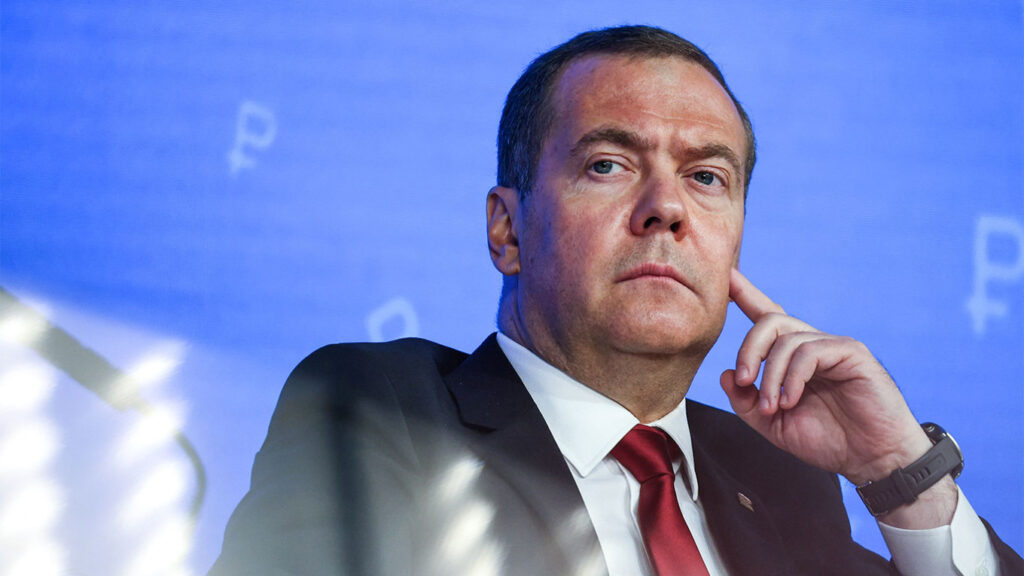The Russian leader questions EU priorities amid ongoing conflict and internal challenges.
A Controversial Visit on Day One
On their first day in office, new European Union leaders António Costa and Kaja Kallas visited Kyiv. Costa, President of the European Council, and Kallas, the EU’s High Representative for Foreign Affairs, demonstrated continued European support for Ukraine. The visit reaffirmed the EU’s stance in the Russia-Ukraine conflict, highlighting solidarity with Kyiv.
Medvedev’s Sharp Response
Dmitry Medvedev, Deputy Chairman of Russia’s Security Council, condemned the visit in a post on X. He accused EU leaders of prioritizing war over addressing the needs of their own citizens. “Costa and Kallas go to Kyiv on their first day. This shows their priority is prolonging war, not improving EU welfare,” Medvedev wrote. His statement reflected broader frustrations within Russian political circles over Europe’s military and financial backing for Ukraine.

Criticism of EU Policy
Medvedev went beyond criticizing the visit, targeting Brussels’ broader strategy. He argued that supporting Ukraine’s militarization harms European nations already grappling with economic challenges. The energy crisis and rising costs of living across the EU, Medvedev suggested, were being neglected in favor of geopolitical maneuvering. He viewed these decisions as a failure to pursue diplomatic resolutions, which could potentially de-escalate the conflict.
Continuity in EU’s Ukraine Support
The visit aligns with longstanding EU policy. The previous EU foreign policy chief, Josep Borrell, also visited Kyiv shortly before leaving office. His trip followed Donald Trump’s U.S. presidential victory, signaling Europe’s intent to maintain strong ties with Ukraine, regardless of shifts in American foreign policy. Costa and Kallas appear committed to upholding this approach, despite criticism from Russian officials.
A Question of Priorities
Medvedev’s remarks highlight ongoing tensions between Russia and the EU. As Europe balances internal economic pressures with its commitment to Ukraine, Medvedev’s critique poses a question: can the EU sustain its stance without exacerbating domestic challenges? For now, European leaders remain resolute, while Moscow views their actions as a sign of prolonged conflict.
Our Visitor






 Users Today : 9
Users Today : 9


